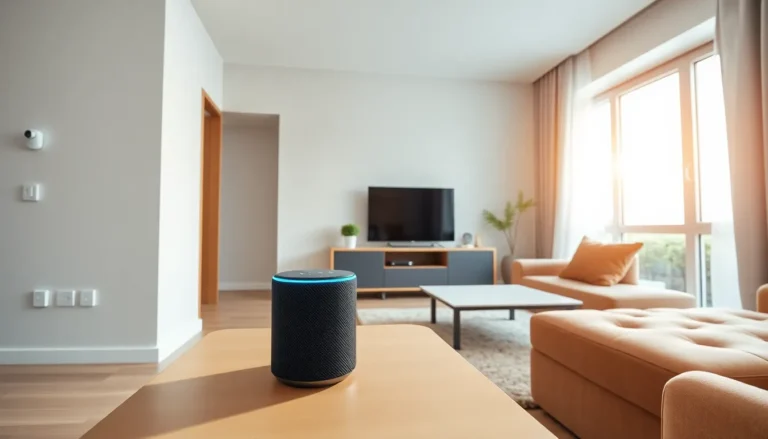Table of Contents
ToggleIn a world where a chic selfie can skyrocket a teen’s popularity, real estate agents are often left floundering in the vast digital ocean. Enter digital marketing, the magic wand that transforms your average agent into a savvy selling machine. As buyers browse listings with the nonchalance of scrolling through Instagram, mastering this realm is no longer optional: it’s essential. Buckle up as we decode the digital matrix for real estate agents, blending humor and savvy strategies that can elevate your online presence like never before.
Understanding Digital Marketing In Real Estate

Digital marketing is not just a buzzword: it’s a game changer for real estate agents navigating today’s competitive landscape. Understanding this concept means recognizing how to effectively reach potential clients through various online channels. With traditional marketing slowly being eclipsed by the digital age, agents who adapt are the ones who thrive.
In real estate, platforms like websites, social media, and email campaigns are not simply tools: they are bridges connecting agents to clients. An agent mastering these techniques can attract leads while also nurturing existing relationships, ensuring the buzz around their listings never fizzles out.
Given the industry’s reliance on visual appeal, real estate agents are uniquely positioned to capitalize on captivating online content. From stunning property showcases to market insights communicated through engaging blog posts, digital marketing offers endless possibilities to highlight one’s expertise.
Key Components of Digital Marketing
Harnessing the power of digital marketing involves several key components that form the backbone of an effective strategy. These include:
- Website: This is the agent’s digital storefront, needing to be user-friendly, informative, and visually appealing.
- SEO: Search Engine Optimization is crucial for getting discovered on search engines.
- Content Marketing: High-quality content like blogs, videos, and infographics provide value and establish authority.
- Social Media: Platforms like Facebook, Instagram, and LinkedIn serve different purposes in promoting listings and building networks.
- Email Marketing: Regular newsletters and targeted campaigns keep the audience engaged and informed.
- Paid Advertising: PPC campaigns and social media ads can effectively target specific demographics, maximizing visibility.
Combining these elements creates a robust strategy that not only draws in potential clients but also cultivates trust.
Creating A Strong Online Presence
A strong online presence in real estate requires pouring time and creativity into building a personal brand. First, an agent’s website should not simply be a digital business card but a comprehensive resource. This can include:
- Listings: A clean layout showcasing properties with high-quality images.
- Testimonials: Social proof in the form of client reviews can help seal the deal.
- Blog Sections: Regular posts about market changes, tips for buyers/sellers, and community insights can make the site a go-to destination.
Also, maintaining consistency across different platforms ensures agents remain top-of-mind. Using the same professional image, logo, and voice helps cement a brand identity. For instance, employing engaging visuals on Instagram paired with insightful articles on LinkedIn showcases versatility.
Effective Social Media Strategies
Social media is not a magic wand but it comes close. For real estate agents, platforms such as Facebook, Instagram, and LinkedIn are treasure troves ripe for the picking.
To leverage social media effectively, agents should ponder these strategies:
- Visual Content: Eye-catching images and videos generate more engagement than text alone. Think stunning property tours or before-and-after renovations.
- Consistency: Posting regularly keeps an agent relevant. A steady stream of content helps maintain visibility and fosters relationships.
- Engagement: Responding to comments and messages in a timely manner reinforces the agent’s commitment to clients. Lively discussions can convert lurkers into leads.
- Advertising: Social media advertising allows precision targeting, making it easier to reach the desired audience. Paid promotions can elevate visibility for special events, open houses, or informational webinars.
Leveraging SEO For Real Estate Websites
In the realm of digital marketing, SEO can be the difference between being lost in the digital abyss or standing front and center on search engine results pages. For real estate agents, optimizing a website for SEO involves certain best practices:
- Keyword Research: Identify the terms potential clients are searching for, think phrases like “homes for sale in [Your Location].”
- On-Page SEO: Use keywords strategically within the website’s content, headers, and meta descriptions without losing the natural flow.
- Local SEO: Targeting location-specific keywords helps attract shoppers looking for properties in a specific area.
- Mobile Optimization: Given the growing mobile searches, ensuring the site is responsive is non-negotiable. Listings should be easily accessible regardless of the device used.
- Backlinks: Earning backlinks from reputable local businesses or blogs not only drives traffic but also enhances credibility.
Email Marketing Tactics For Real Estate Agents
Email marketing might sound like a relic in a fast-paced digital world, but it remains remarkably effective when executed brilliantly. Here are tactics for successful email outreach:
Measuring Success In Digital Marketing
- Segmentation: Divide the email list based on client preferences and behaviors. Tailored campaigns foster connection.
- Value-Driven Content: Share valuable insights about the local market, new listings, and exclusive invitations to events. This positions the agent as a trusted advisor.
- Call-To-Action: Each email should include a clear call-to-action, whether that’s to view a new listing or register for a webinar.
- Analytics: Monitor open rates, click-through rates, and overall engagement metrics to refine future strategies.







